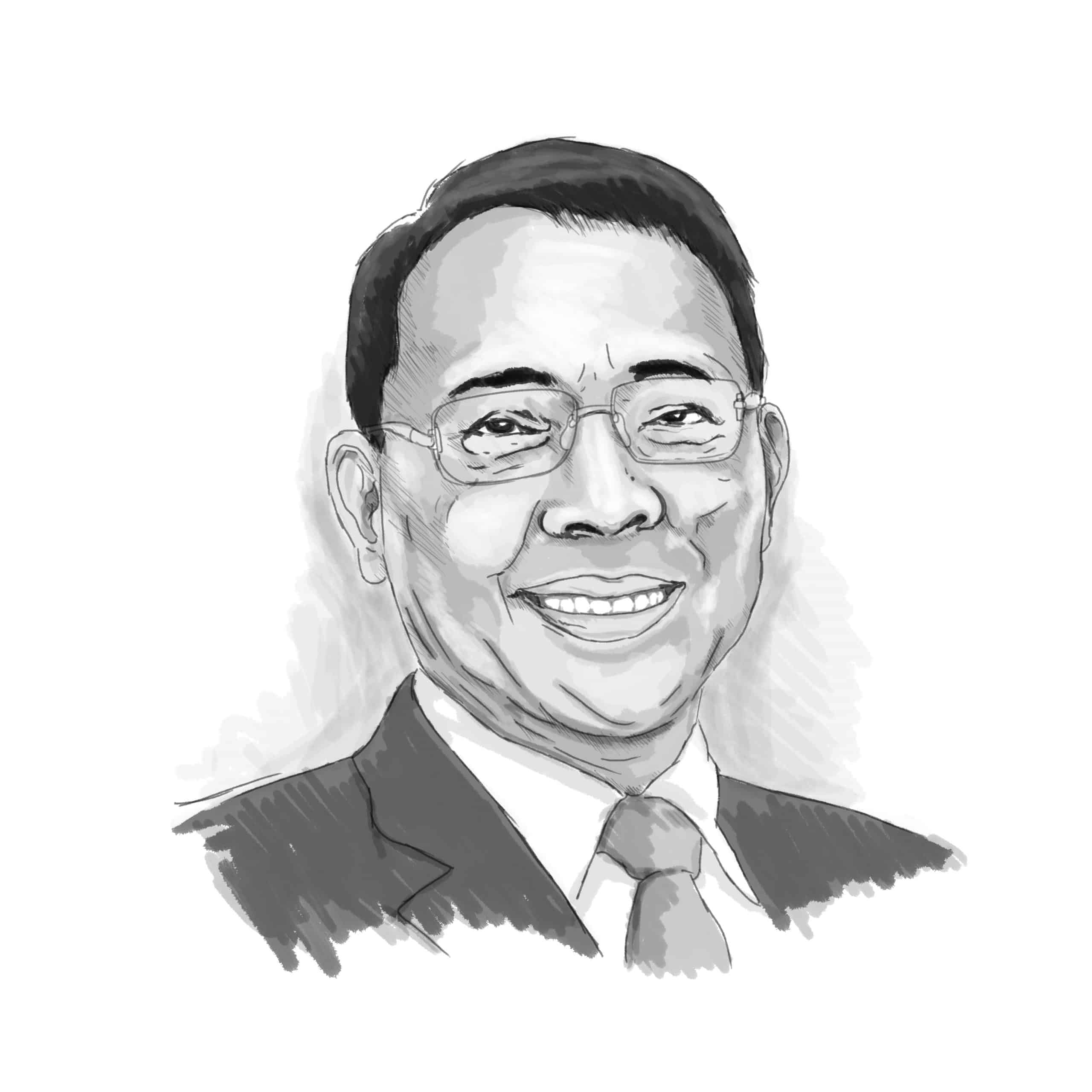OF SUBSTANCE AND SPIRIT

Disrespecting the law is no less than an act of insolence, and in the “Law Insider” formulation, that is arrogant, presumptuous, impudent, or in fact even insulting. It could even be at once rude because it is no less than the Philippine law that is being crushed.
What Alice Guo did was a shameless disregard of the law, call it contempt of the law. If true, being non-Filipino made it worse, many times over. Of course, no less disrespectful of the law is how Apollo Quiboloy broke it by refusing to surrender to the authorities, until recently, despite the arrest warrant served to him in his own kingdom.
Unfortunately, disrespect of the law, rather than the rule of law, has a long history in the Philippines.
The American expatriate businessman Harry Stonehill broke the law when he bribed high-level government officials in the early 1960s. His case also dragged at least three former presidents in order to protect his $50 million business in tobacco and various commercial crops, among others. Then Justice Secretary Jose W. Diokno caused the raid of the offices of 42 of Stonehill’s business establishments in 1962 and the arrest of Stonehill and some of his associates.
Based on what was described as six army trucks worth of incriminating evidence, Stonehill was accused of tax evasion, economic sabotage, and various other charges that could have been established by his Blue Book which mysteriously went missing. It contained the names of Filipino politicians and government officials who were alleged to have received bribe money from the American businessman. Before the case could be tried in court, Stonehill was subsequently deported by Malacañang.
Alice Guo treated Philippine law like rag when all evidence points to her faking her birth circumstances to gain entry into the Philippines and become a Filipino citizen. If she is indeed non-Filipino and therefore disqualified, she violated our electoral law when she ran and took her oath of office as mayor of Bamban, Tarlac. This gains credence in the face of Guo’s fingerprints being a perfect match with a Chinese national, Guo Hua Ping. Guo could not explain how she was able to construct the multibillion building complex of POGO business in Tarlac. It was impossible because her tax returns and SALN could only support a modest lifestyle.
As Reuters reported, even as Philippine authorities had filed several counts of money laundering, Guo continues to insist “she is natural-born Philippine citizen facing ‘malicious accusations,’ and had no knowledge of criminality.” This is strange because she could not even remember her roots, even her playmates while growing up.
For weeks before she escaped from the Philippines to Malaysia, Singapore and Indonesia, our elected senators could not get through her. It was a blank wall for them when Guo would always retort that she grew up in a farm, her only close friends were the farmhands in their piggery, or when confronted by documentary evidence of her true nationality, that she could not remember anymore.
The bigger picture is the undeniable involvement of those in authority.
She could not have entered the Philippines without the complicity of our immigration authorities. She could not have produced her Filipino birth certificate without the knowledge of the civil registrar and the statistics authorities. She could not have run for public office if our election authorities conducted a simple due diligence. She could not have sustained her POGO and alleged illegal activities if law enforcers did not turn a blind eye. She could not have escaped from the Philippines in July without official intervention.
It's a sad commentary that even notarization of public documents could be dragged into this scandal. As Rappler reported, a lawyer “committed lapses when he notarized the counter-affidavit of suspended Bamban Mayor Alice Guo in relation to a DOJ human trafficking complaint on Aug. 14.” By that time, Guo was already out of the country.
When she was finally arrested by Indonesian Interpol in Tangerang, it was disclosed that a Singaporean national helped Guo book four hotel rooms in Batam island. And to the surprise of many, no less than Interior Secretary Benhur Abalos and PNP Chief PGen. Rommel Marbil who served the Senate arrest warrant to Guo. She was brought back to Manila in yes, a private plane.
There was little progress during the Senate hearing, notwithstanding the competent leadership of Senator Risa Hontiveros. All that Guo had to do to frustrate the senators’ spirited questioning was to claim innocence, short memory or the risk of incriminating herself.
If at all, Guo even taught the Senate what to do and this was to convert the public hearing into an executive session. Only then could she disclose to the Senate who engineered her escape. When the Senate refused, Guo was persuaded to write on a piece of paper the name of the person who helped her escape. By the disclosure of two senators, another non-Filipino disregarded the Senate arrest warrant by helping Guo and her siblings and associates avoid arrest through the southern backdoor.
Nothing should surprise us anymore when non-Filipinos have the gall to disrespect our legal and justice system. We ourselves have nurtured such a habit of setting aside the law and just treating it as an elephant in the room, and in many cases, too, as a doormat.
This is in contrast to what the Philippines aspired for a “people-centered, clean and efficient governance” in the Philippine Development Plan 2017-2022. In Chapter 5, we as a people, expressed our adherence to a high-trust society where “citizens obey the law, they willingly pay the correct taxes trusting that government will prudently manage the fiscal resources.”
Indeed, the cornerstone of a high-trust society is the trust in government.
But we have doubt whether the plan to “enhance the social fabric by making government worthy of people’s trust” actually bore fruit given Alice’s tale in POGO land.